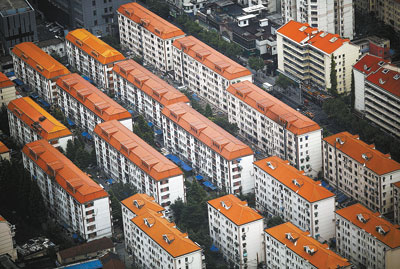
RATTLTED by falling home prices, some of the wealthiest Chinese are paring their property investments and turning to private equity or overseas holiday homes, a sign of fading hopes that the once red-hot market can bounce back any time soon.
“Smart money” checking the exit is a bad omen for any market, especially one considered frothy after a five-year record-breaking bull run, but wealth managers, brokers and analysts say there is no reason for alarm yet.
First, the rich are not in a full retreat mode but rather looking to spread the risks more evenly, money managers say.
“There are indeed clients choosing to reduce their exposure to the property sector, but it’s not a common phenomenon,” said an investment strategist at a private banking arm of a large State-owned bank. The banker declined to be named because he was not authorized to speak to the media.
Bankers also don’t expect investors to simply dump their real estate because the market cools.
“Unless someone has an especially big portion of their assets invested in property, he or she would not be in a hurry to sell,” said Wang Jing, a deputy general manager at China Merchants Bank’s private banking arm. “They would choose to rent their houses to deal with their cash-flow problems.”
Furthermore, millions of middle-class Chinese, not rich enough to invest abroad and frustrated by official limits on bank deposit rates that barely beat inflation continue to see buying a second or third home as the best investment.
Confronted with talk of more price cuts by developers to revive ebbing sales, those investors either hold on to cash and wait or focus more on megacities like Shanghai or Beijing and avoid smaller markets that struggle with oversupply.
“The choice of the rich is the view of a minority. We do not think it represents a trend for the masses in the future,” said Zhao Dazhen, a property analyst at CEBM Group, an investment research firm in Shanghai.
“Market uncertainty is keeping most people on the sidelines. Potential buyers will be back once there are signs of a recovery.”
Data appear to confirm that analysis, with new yuan deposits nearly tripling in June to 3.8 trillion yuan, the biggest jump in at least 12 months. The central bank’s second-quarter consumer survey also showed property has not lost its appeal: 14 percent of households said they wanted to buy a new home, roughly the same as a year ago.
By contrast, the rich, investment advisers at their side, increasingly choose to shift their money elsewhere in search for better returns rather than wait for prices to level off.
China’s wealthy have dabbled in foreign real estate in the past and fears that the market has gone are also not exactly new.
What is new is a growing sense that despite a pick-up in home sales volumes last month, the second monthly decline in prices in June might be the beginning of a longer slide.
Well-heeled investors are also shifting funds abroad faster than ever. Realtors in New York, Sydney or London all report how over the past year Chinese buyers became top foreign investors in their markets, snapping up high-end prestige properties.
Data from the National Association of Realtors, a U.S. trade association, showed that the Chinese accounted for about 16 percent of foreign homebuyers in the United States in the year ending March 2014, up from 12 percent in 2013 and 2012.
Compared with the size of the domestic property market — 8.1 trillion yuan (US$1.3 trillion) in sales last year — outflows are still relatively small and a central bank probe into an offshore investment scheme offered by one of China’s major banks might curb investor appetite for foreign assets.
For optimists, the limited scale of the foreign property investment and firm belief of many Chinese that a home remains the best store of value suggest that China’s housing market is in a “natural correction” rather than on the brink of a slump.(SD-Agencies)
|

